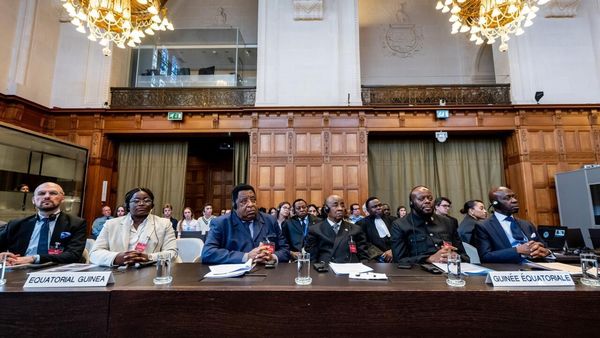The man who has spent nearly 20 years in prison for murdering two Swedish backpackers has spoken out about going back to court to have his case reconsidered.
Earlier today, David Tamihere was granted the rare legal lifeline of a Royal Prerogative of Mercy after it was signed off the Governor General and Cabinet.
His double-murder case dates back to 1990 when he was found guilty of killing tourists Urban Hoglin, 23, and Heidi Paakkonen, 21, in the Coromandel.
Tamihere has always professed his innocence.
READ MORE:
• David Tamihere's backpacker murder convictions will be heard by Court of Appeal again
• David Tamihere asks Crown to have another look at jailhouse witnesses
• Exclusive: Infamous double murderer David Tamihere's best mate jailed for decade of child sex abuse
• David Tamihere to be released from prison
This afternoon, he told Newstalk ZB's Heather du Plessis-Allan he had "a lot more optimism" compared with last time round and believed that came down to a change in attitudes from judges.
"The judges and system is changing. A lot has changed since I was convicted, the Court of Appeal only listened to the Crown and no one else."
/arc-anglerfish-syd-prod-nzme.s3.amazonaws.com/public/UTUHO3LR2NCVRDV6HLKXX3VU24.jpg)
Tamihere told du Plessis-Allan he didn't mind going to prison for crimes he'd committed but could not accept being jailed for "something that wasn't down to [him]".
"As far as I was concerned most of it was manufactured and everything, so I got my backup.
"I was offered a couple of times that if I nodded my head to it I would get a fairly quick release but I wasn't interested in that."
Tamihere's lawyer Murray Gibson said there was a long road ahead to proving a miscarriage of justice.
"Not many of these applications succeed, and of course we've still got the hurdle of persuading the Court of Appeal that a miscarriage of justice occurred, which I think it has.
"It was not only the perjury convictions that have prompted this but also some doubts about the original identification evidence in the trial," Gibson told Newstalk ZB.
/arc-anglerfish-syd-prod-nzme.s3.amazonaws.com/public/AN42FKCKIVFP5GWGEPQU34ISRA.jpg)
Gibson said he was grateful that the Ministry of Justice prepared advice recommending the prerogative application be accepted.
"It's a very high threshold that's required in order for the prerogative of mercy to be exercised, and in each case obviously it has to be dealt with on its merits."
The Appeal is dealing with evidence that's 30 years old, so he's hoping for some time to prepare for the re-hearing, Gibson said.
Tamihere had skipped bail for a 1986 rape and was on the run when the murders were committed. The brother of former Labour Cabinet Minister John Tamihere also has a manslaughter conviction for the 1972 death of an Auckland prostitute.
The mystery over whether he was the Swedes' killer gripped the nation and sparked the biggest land-based search ever undertaken in New Zealand, but no bodies were initially found.
Timeline:
1989: Paakkonen and Hoglin disappear on the Coromandel Peninsula
1990: Tamihere is convicted of murdering the Swedish travellers and sentenced to life imprisonment
1991: Hoglin's remains are found near Whangamata
1992: The Court of Appeal rejects Tamihere's appeal
1994: Tamihere denied leave to appeal to the Privy Council
1995: Witness C swears an affidavit retracting his evidence
1996: Witness C retracts his retraction
2010: Tamihere is released on parole
2016: A private prosecution alleges Witness C lied at Tamihere's trial
2017: Witness C is sentenced after being found guilty of perjury and not guilty of perverting the course of justice
2017: Witness C appeals the perjury convictions and sentence and fights to keep his identity hidden
2018: Witness C drops his appeal against the perjury convictions and is later revealed as Roberto Conchie Harris
2018: The High Court revokes Witness B's suppression order
2020: Justice Minister Andrew Little announces David Tamihere's case is heading back to the Court of Appeal after a Royal Prerogative of Mercy application







